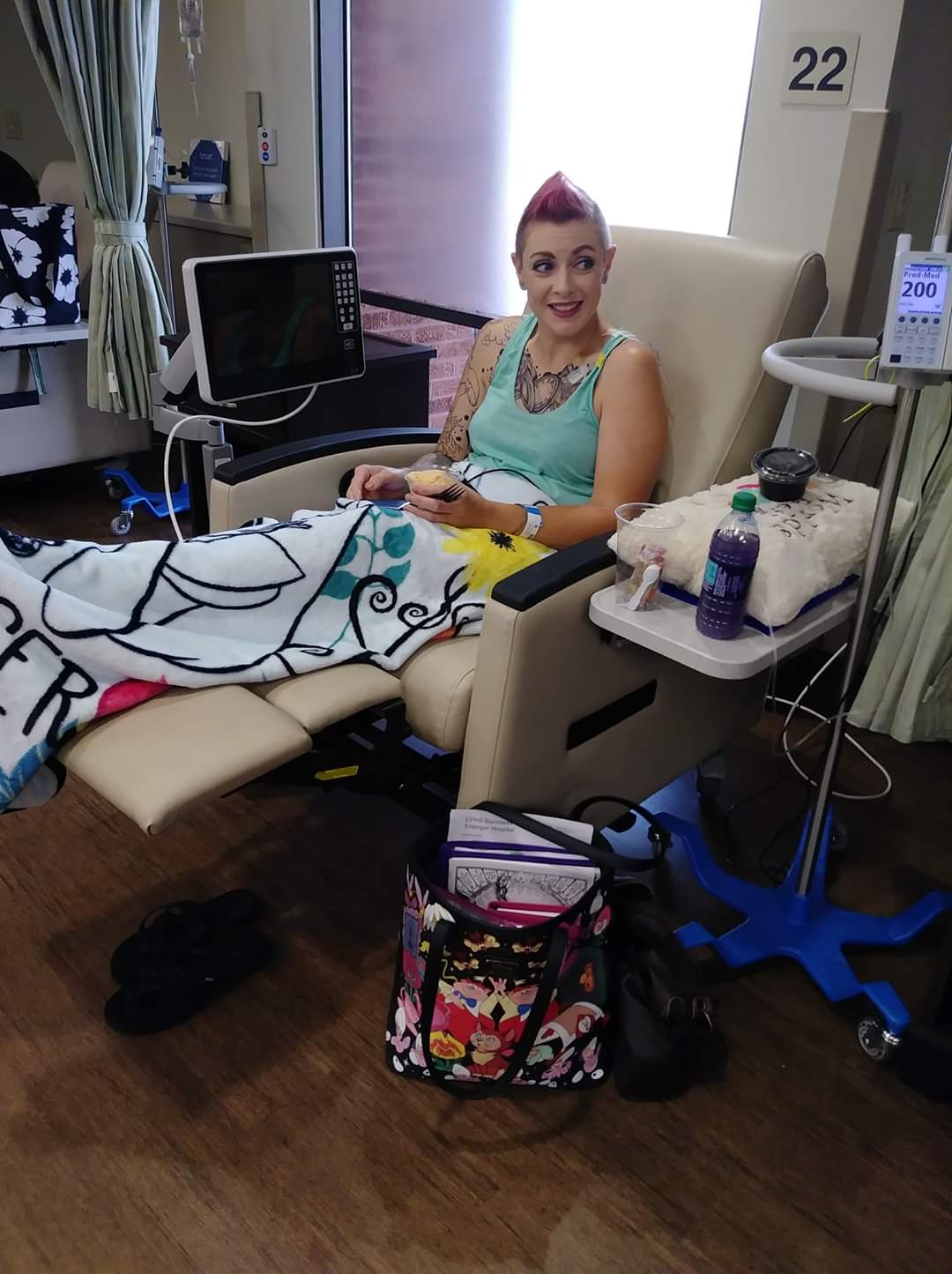Living Well with Serious Illness: April’s Palliative Care Story
October is Breast Cancer Awareness Month, so we are sharing April’s story. April was diagnosed with stage 3 breast cancer when she was 37 years old. She had 16 rounds of chemotherapy, 30 rounds of radiation, and a mastectomy.
When she was diagnosed, her life was centered around her two young daughters and her hair salon, which she owned and managed. The cancer and its treatment were devastating enough, but matters became worse when she had to stop working at the salon because of symptoms and side effects.
April says, “Being a hairdresser was always something I wanted to be, even as a kid. I was the girl putting curlers in my cat’s hair for practice. Not being able to work was really hard.”
Her cancer doctor recognized that April could use an extra layer of support to deal with her symptoms, like nausea and hot flashes, pain that made standing difficult for more than a few seconds at a time, and the emotional toll it was having on her. The doctor referred April to a medical specialty to help her address these symptoms. The ultimate goal was to get her back to the job she loved.
This is April’s Palliative Care Story.
What is Palliative Care?
Palliative care is specialized medical care for people living with a serious illness. This type of care focuses on providing relief from the symptoms and stress of the illness. The goal is to improve quality of life for both the patient and the family. Palliative care is provided by a specially trained team of doctors, nurses and other specialists who work together with a patient’s other doctors to provide an extra layer of support. It is appropriate at any age and at any stage in a serious illness, and it can be provided along with curative treatment.
Tackling the Symptoms
April’s palliative care team started by learning about everything April was dealing with. In their initial conversations, she opened up about how the nausea and hot flashes were keeping her up at night. The team’s doctors and nurses discussed possible changes in April’s medicines with her cancer doctor, and together, they found the right balance to help reduce those symptoms.
The palliative care team also helped April manage the pain from the chemotherapy and radiation treatments, as well as the surgery. In addition, the team taught April breathing techniques to help her deal with anxiety. This combination of approaches helped April relax and get the sleep she needed.
“Because of the help I received from the palliative care team, I started to feel like my old self again,” says April.
Addressing Stress and Setting Goals
April has a large extended family who have been very supportive throughout her cancer journey. Her hair salon clients and other community members helped to alleviate the financial burden caused by not being able to work. Even with all of this support, April struggled daily with her “new normal”. Jacqui, the palliative care team’s social worker, supported April with coping techniques, allowing her to discuss frustrations about not being as active as she once was, and encouraging her to set goals to reach throughout the treatment process. April’s biggest goal was to return to her hair salon.
“April likes to say that palliative care helped her with these stress and anxiety issues. But she did the real work on her own,” describes Jacqui. “From day one, she was open to making improvements in any way she could. That made all the difference.”
Staying Connected with Her Palliative Care Team
With the pain and stress under control, April was able to return to work.
“Just being back here around my clients and friends is a feeling I can’t describe,” says April.
Now on the road to recovery, April continues to meet with her palliative care team, to help her deal with lingering symptoms and an uncertain road ahead. She is able to spend more time with her children and feels empowered by what she’s been able to overcome. April is also focusing her attention on raising awareness of palliative care for other people facing serious illnesses.
“Palliative care has been there for me during the most difficult time in my life. I’m grateful that I was open to meeting and getting to know this wonderful team,” says April.
Click here to learn more about how palliative care can help someone living with cancer. Or, to find out how you or a loved one can benefit from palliative care, regardless of the illness, visit GetPalliativeCare.org/rightforyou.
About GetPalliativeCare.Org
GetPalliativeCare.Org is an online resource for patients and families that focuses solely on providing information on palliative care from the point of diagnosis. At GetPalliativeCare.Org you can take a short quiz to see whether you could benefit from palliative care, and find a nearby provider. The site is provided by the Center to Advance Palliative Care.

